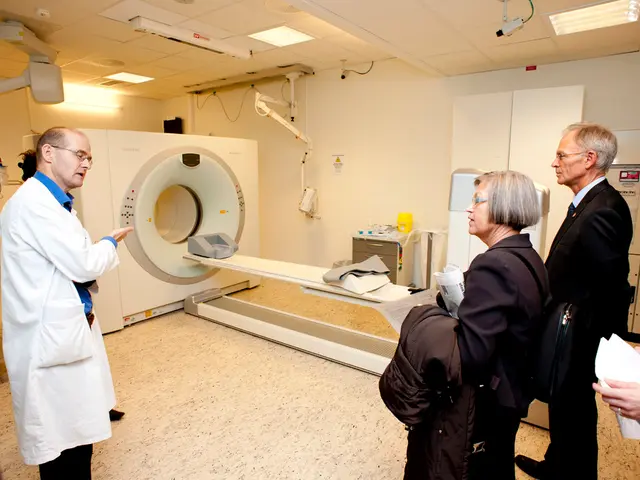Organ Transplantation: Advocating for Consent-Based Systems: Opt-In vs. Opt-Out Approach Compared
Organ donation policies around the globe exhibit significant diversity. The question remains, should people be required to opt in or opt out for organ donation? To unravel this, a team of researchers from the UK took a deep dive into the organ donation protocols of 48 countries to discern the most effective approach.
With opt-in systems, people need to actively register as organ donors following their demise. On the other hand, opt-out systems set organ donation in motion automatically unless a specific request is made beforehand to abstain.
Lead author, Prof. Eamonn Ferguson, from the University of Nottingham UK, acknowledges that relying on individual decisions for these systems can have drawbacks such as "loss aversion, effort, and believing that the policy makers have made the 'right' decision and one that they believe in."
Opting out inadvertently can lead to individuals who would have preferred to donate not donating (a false negative). Conversely, inaction in an opt-out system could potentially lead to an individual who does not want to donate becoming a donor (a false positive).
The United States employs an opt-in system, with around 28,000 transplants made possible last year due to organ donors. Unfortunately, around 18 people continue to pass away daily due to a scarcity of donated organs.
Researchers from the University of Nottingham, University of Stirling, and Northumbria University in the UK analyzed the organ donation systems of 48 countries over a period of 13 years. Of these, 23 countries operated an opt-in system while 25 implemented an opt-out system.
They discovered that countries using opt-out systems had a higher number of donated kidneys, the organ most in demand for transplants. Furthermore, these countries reported a greater overall number of organ transplants.
However, opt-in systems demonstrated a higher rate of kidney donations from living donors. This subtlety, which Prof. Ferguson suggests "has not been reported before," necessitates further consideration.
The study was limited by its failure to differentiate between varying degrees of opt-out legislation, with some countries requiring permission from next-of-kin before organs can be donated. Additionally, other potential factors influencing organ donation were left unassessed due to the observational nature of the study.
Prof. Ferguson observes that future research should focus on the individual's perspective, examining beliefs, wishes, and attitudes towards organ donation using both survey and experimental methods.
The researchers posit that their results can potentially be used to guide decisions on policy and suggest strengthening their findings through the regular collection and public availability of international organ donation information, such as consent type, procurement procedures, and hospital bed availability.
Countries with opt-out systems still grapple with organ donor shortages. Therefore, drastically overhauling the system of consent may not be the solution. Instead, they propose that changes to consent legislation or adopting aspects of the "Spanish Model" could potentially improve donor rates.
Spain boasts the highest organ donation rate globally. Its success is attributed to the combination of the opt-out system and measures such as a coordinated transplant network and improved public information about organ donation.
Recently, discussions surfaced about the potential of farming animal organs for human transplants as a solution to the organ shortage. However, further examination of changes to organ donation policy appears necessary.
- The study by researchers from the UK revealed a higher number of donated kidneys in countries with opt-out organ donation systems, indicating a potential advantage for these systems in meeting the high demand for transplants.
- Opt-in systems demonstrated a higher rate of kidney donations from living donors, suggesting a unique aspect that requires further exploration and understanding.
- The team of researchers from the UK, University of Stirling, and Northumbria University analyzed the organ donation systems of 48 countries over a period of 13 years, finding that 23 countries used an opt-in system while 25 implemented an opt-out system.
- The United States employs an opt-in system, with around 28,000 transplants made possible last year due to organ donors, yet there is still a daily death toll of approximately 18 people due to a shortage of donated organs.
- In the context of ongoing discussions about farming animal organs as a solution to organ shortages, this study suggests that changes to organ donation policy and adopting aspects of the "Spanish Model" could potentially improve donor rates, rather than turning to animal sourcing as a primary solution.








